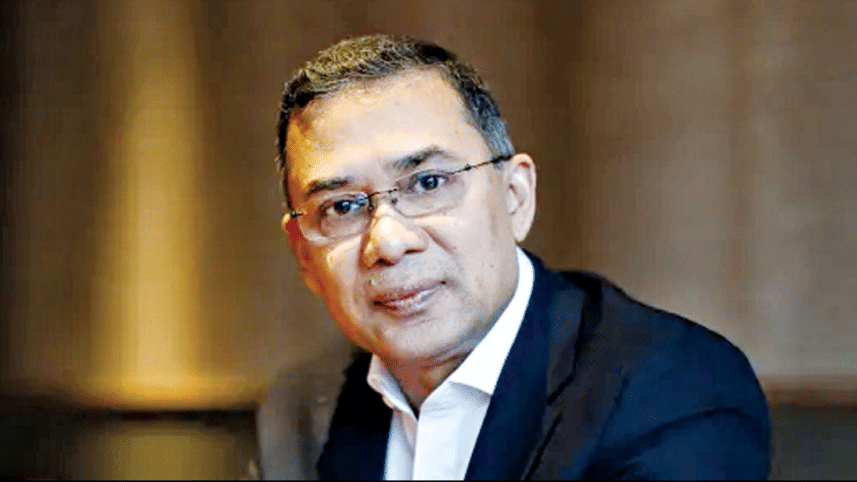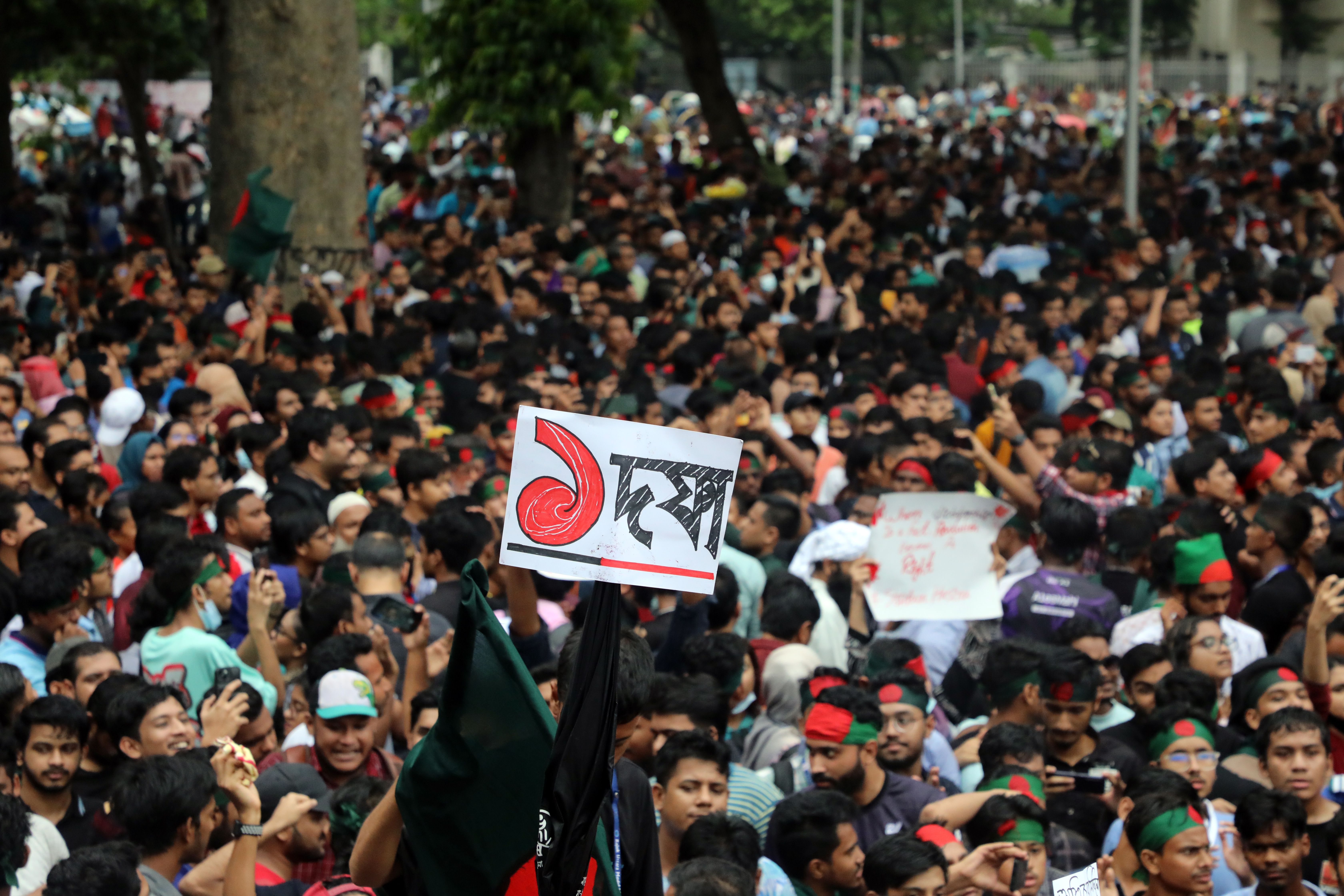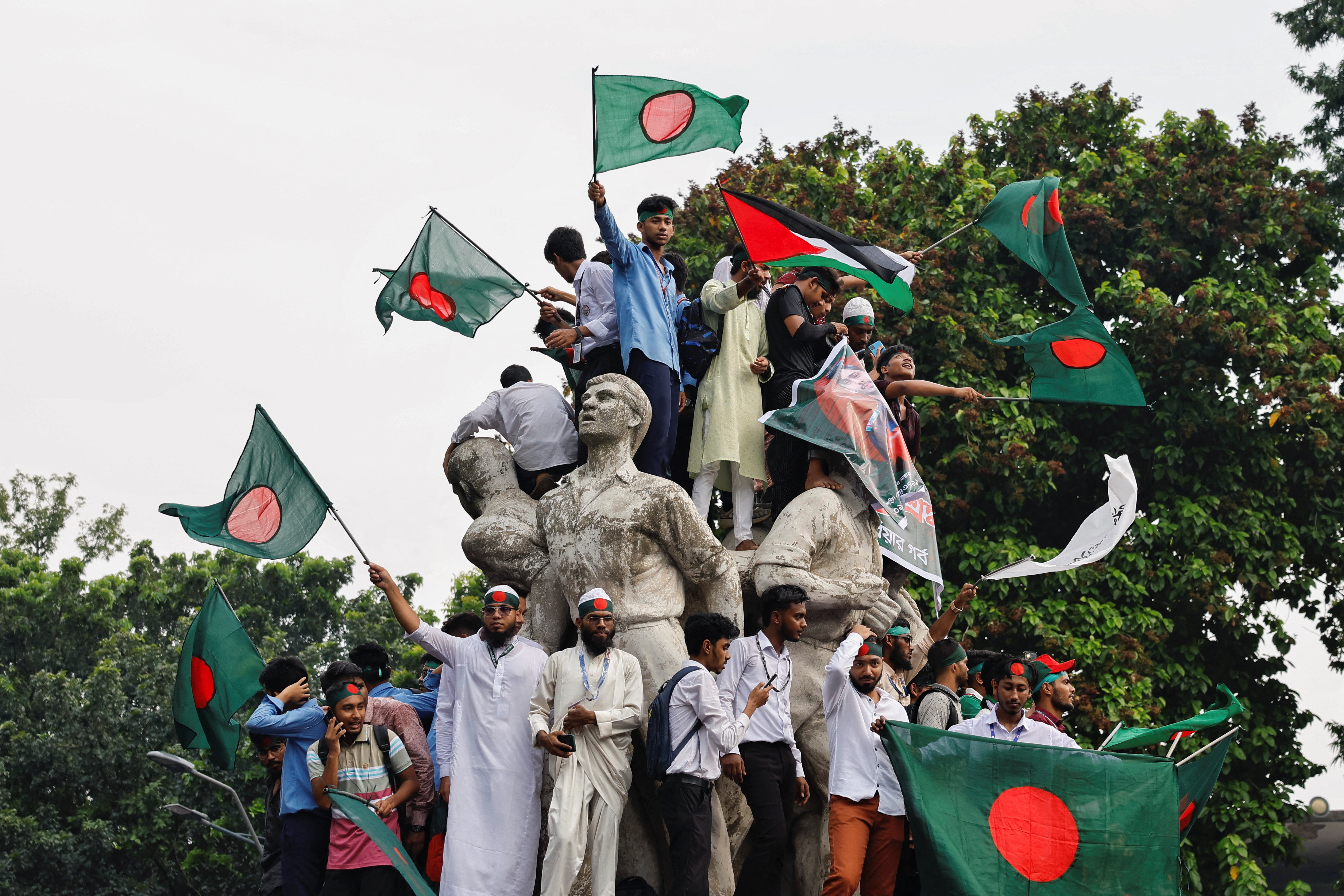Tarique Rahman and the question of political renewal

In the aftermath of the 2024 mass uprising that reshaped Bangladesh's political landscape, Tarique Rahman has reemerged from years of silence to become both a symbol of revival and a subject of scrutiny. His recent interviews with BBC Bangla and the Financial Times mark perhaps the most comprehensive articulation of his thoughts and ambitions since his exile in 2008. For the first time in nearly two decades, Rahman, now BNP's acting chairman, spoke with clarity about his plans to return home, lead his party into the upcoming elections, and reclaim the space vacated by Sheikh Hasina's dramatic fall from power.
But the story of his return is not just about one man's comeback. It is also about whether the country can move beyond its entrenched cycle of dynastic politics, partisan revenge, corruption, and other markers of Hasina's authoritarianism to usher in a genuinely accountable and inclusive democracy.
While talking to the BBC, Rahman's tone was measured and at times humble. "I am physically here [in the UK], but mentally I have always remained in Bangladesh," he said. It was a statement not just of longing; it was a reminder to his supporters that absence had not equated to detachment. His insistence in both interviews—that he would "soon return" to contest elections, and that BNP would win "a sweeping majority"—reflected both confidence and calculation. For a man long portrayed as divisive, he sought to project reason, inclusivity, and stability.
Yet beneath that calm surface, contradictions endure.
Rahman's interviews showcased a careful balancing act between vindication and reconciliation, reform and legacy, and humility and ambition. He repeatedly distanced himself from the cult of personality that has long haunted our politics, saying, "The mastermind of the July movement was not any party or individual; it was the democracy-loving people of Bangladesh." This framing, while noble, was also strategic. By attributing the revolution to collective will, Rahman positioned himself as a product of popular legitimacy rather than its architect, a useful image at a time when BNP seeks to rebuild credibility among the youth that led last year's uprising.
At the same time, his refusal to fully acknowledge BNP's share of failures or political toxicity has left a faint shadow over his reformist narrative. When pressed about the party's history of corruption during its 2001-2006 tenure, Rahman insisted to the BBC that Transparency International's damning indices at the time were based more on the legacies of the previous Awami League government. "We may not have been able to fix it completely," he admitted, "but we have to understand the reality. This [corruption] has become a social disorder." In his Financial Times interview, he acknowledged that "any government has some flaws" but nonetheless defended BNP's record on corruption, hinting at "false narratives" and highlighting that it was BNP that had established the Anti-Corruption Commission. (To be clear, in its initial report, FT referred to Bangladesh being ranked the most corrupt country for five consecutive years during BNP's last tenure, but later corrected the reference to clarify that it was actually four years).
On the question of BNP's nominees for the upcoming elections, Rahman's emphasis on selecting those "who have public support, not just party support" is promising in theory, but such ideals have often dissolved in the face of patronage and factionalism in the past. His assurance that the BNP expelled 7,000 members over allegations of extortion and abuse post-uprising indicates a willingness to enforce discipline. It also reveals the scale of internal decay that the party must confront before claiming the moral high ground.
In both tone and substance, Rahman sought to mirror a new brand of politics, one tempered by exile and experience. His references to digital transformation, economic diversification, and the need to "make people's lives better tomorrow" hinted at a reformist economic vision. His proposal to make Bangladesh a "supply hub" for global online retailers like Amazon or Alibaba may sound ambitious, but it is also grounded in a recognition that the garment sector, long the country's economic engine, is facing external pressures from tariffs and shifting global supply chains.
On political inclusion of rivals, Rahman remains both assertive and evasive. His proposition that Awami League leaders "convicted as criminals" cannot contest the elections leaves open the possibility of excluding the party from the democratic process. While he emphasised that "this is not a matter of revenge, but of justice," his definition of justice, equating charges with conviction, risks being interpreted as political cleansing. It is here that his rhetoric of unity meets its limits. A genuine democracy cannot begin by disqualifying the defeated.
Rahman's emotional reflections on his family's suffering, his mother's illness, his brother's death, and his own torture, however, humanise him before an audience that has often seen him as privileged and untouchable. Bangladesh's tragedy has long been that leaders once victimised in the past have often turned their grievances into repressive instruments of governance. Rahman's challenge is to break that trend.
If his words are any indication, he seems aware of the weight of expectation. "Politics is not family-based," he insisted. "It is based on support." It was a subtle rebuttal to critics who accuse him of perpetuating dynastic succession. Yet his own political authority, inherited through the lineage of Ziaur Rahman and Khaleda Zia, embodies precisely what he claims to transcend. The paradox of Bangladesh's democracy is that both its major parties are trapped in familial legacies they publicly deny but privately depend upon.
There is also the matter of what to do with history. BNP's last tenure ended amid allegations of corruption, militancy, and cronyism—issues that Rahman now pledges to eradicate. For many citizens, especially older ones, trust will not be restored by words alone. If he does return to power, his actions in the first 100 days, particularly how he handles political prisoners, media freedom, and administrative neutrality, can help define not just his credibility but also Bangladesh's democratic future.
As regards the current interim government, his cautious endorsement reveals a pragmatic streak: support for a fair election process tempered by reminders that "warmth or coldness" in relations with the government will depend on how well it conducts its main tasks. It is an artful diplomacy of distance, neither confrontational nor complicit. His foreign policy remarks, particularly his call for a "Bangladesh before all" approach that promises a reset with India, tread an equally delicate line. While his insistence that "if they [India] displease the people of Bangladesh by sheltering dictatorship, there is nothing we can do"—and strong statements on border killings and water sharing—tap into popular sentiment after years of asymmetrical diplomacy under Sheikh Hasina, he also sought to project a vision of parity without hostility. This will be no easy task. His resolve will be amply tested if BNP does form the next government.
Overall, Tarique Rahman's reemergence through the recent interviews represents both a promise and a paradox. And yet, amid all the uncertainties and contradictions, one thing is undeniable: Rahman has reintroduced a long-missing voice into Bangladesh's political conversation. Citizens are once again hearing a leading political leader speak of elections, accountability, and economic renewal, however cautiously. Whether that voice matures into statesmanship or fades into familiar patterns remains to be seen.
H.M. Nazmul Alam is an academic and political analyst based in Dhaka. He currently teaches at IUBAT, and can be reached at nazmulalam.rijohn@gmail.com.
Views expressed in this article are the author's own.
Follow The Daily Star Opinion on Facebook for the latest opinions, commentaries and analyses by experts and professionals. To contribute your article or letter to The Daily Star Opinion, see our guidelines for submission.




 For all latest news, follow The Daily Star's Google News channel.
For all latest news, follow The Daily Star's Google News channel. 

Comments